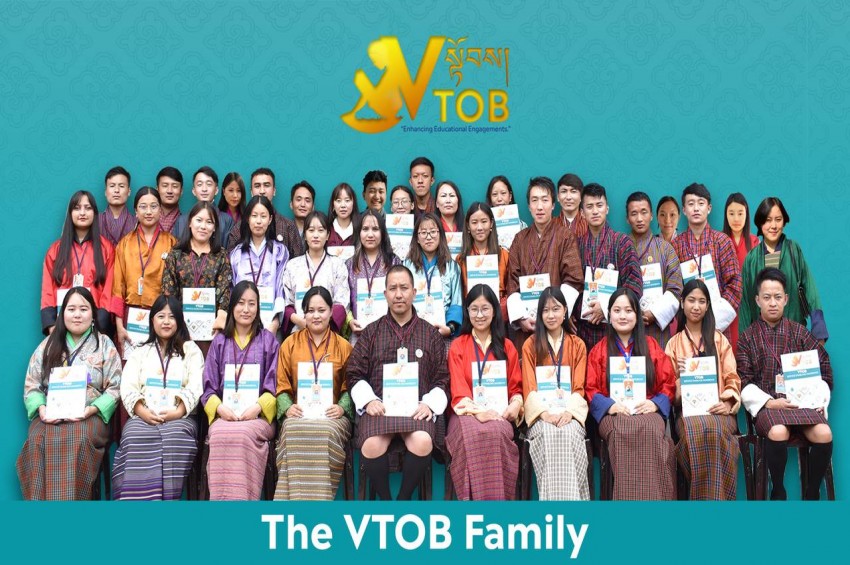Tenzin Choden, Thimphu
With the aim to strengthen inclusive and participatory planning at local level, Bhutan Centre for Media and Democracy organized a six-day workshop ‘Participatory Planning and Decision Making workshop’, this week.
The six-day workshop also hopes to expand public space for diverse voices to emerge and influence national policies and plans.
BCMD’s ‘Participatory Planning and Decision Making workshop’ was attended by 41 participants including elected local governments, district administrators, senior citizens and other like teachers and community members working in close collaboration with the local government.
The workshop is a part of a series of capacity development training under BCMD project on strengthening decentralized planning processes through modeling citizen participation and evidence-based decision-making at the local level; the participants from Thimphu and Paro have successfully participated in two other trainings on Asset based community mapping and media and democracy literacy.
Over the course of the six-day workshop, the participants were oriented to use consultation and planning tools based on GNH which was developed by BCMD after their in-depth research. The-toolkit and training are designed to help build the capacity of LG office bearers to be democratic, inclusive and consultative in conducting public consultations for planning and decision-making with easy-to-understand concepts and practical tools to analyze communities and inform holistic community development plans.
Participant Gyem Tenzin, Tshogpa of Tsaluna, Thimphu shared his learning to The Journalist that “any decision should be classified first such as social, environmental and based on evidence and research and one that is deemed necessary shall be put forward for further discussion”.
He further added, “The program has indeed made me aware of the vulnerable group such as disabilities (PWD) who are gradually left out from decision planning but we realize now that inclusivity is the core element to decision-making process.”
A participant who is a teacher expressed his gratitude and mentioned, “It not only looks at the development plans but also exercise and give us close image of social issue which would make a society a better place to live in. If the social issue are being equally raised and solved just like importance given to development plans, it is a good way to achieve our Gross National Happiness.”
He further added, “People know we need to take care of our environment; people are also aware of penalties for environmental damage, yet we fail to take individual responsibility. From my perspective, it is because we lack good environmental education.”
The role play activity, there were diverse and conflicting views shared and remarkably the participants agreed there is a huge divergent of woman and man participants in decision making. It was observed that woman attends social gathering such as Zomdues and they make decision in the personal sphere however, the public sphere decision are all made and decided by man.
Meanwhile, all the participants felt the need of woman empowerment in such times.
Participants were satisfied with the training as it would not only help them, it support nation building by supporting them to learn ways to put logic and structure in decision-making.
×
- Home
- BCMD aims to strengthen inclusive and participatory planning
Related Posts
Bhutan’s Graduation from Least Developed Country (LDC)...
13th November, 2022
VTOB offers a free after-school enrichment program in...
13th November, 2022
Digital integration of Bhutan’s education systems...
19th October, 2022
Rough ways ahead of Bhutanese applying for Australian...
01st October, 2022
Underutilization of counseling services across the colleges under...
27th September, 2022
Lengthy admission time stresses 22 Bhutanese scholarship MBBS...
03rd September, 2022
Time to change the lengthy enrollment time for...
03rd September, 2022
Derogatory comments passed on the Bhutanese studying and...
03rd September, 2022
Popular News
-
Prime Minister Explores Bilateral Opportunities in India Visit...
23rd March, 2024 -
Bhutan's Economic Growth Slows to 4% in FY...
23rd March, 2024 -
Bhutan's Agricultural Exports Gain Momentum in ASEAN Markets...
19th June, 2023 -
Domestic Transactions Worth Nu.237.11 billion Recorded in 1st...
19th June, 2023 -
Examining the Reality of Civil Servants' Resignations and...
19th June, 2023 -
Inflation Surges: Rising Prices Pose Economic Challenges as...
19th June, 2023 -
ACC Takes a Step Towards Integrity...
19th June, 2023
Copyright © 2024 The Journalist. All Rights Reserved.

















